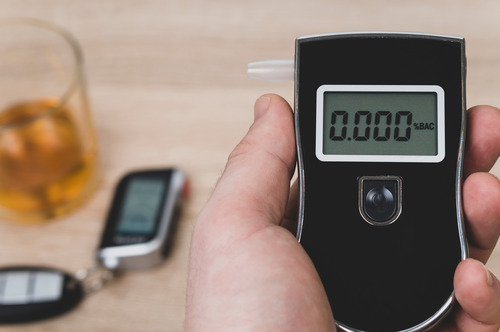If you are charged with D.W.I. in North Carolina, there are numerous things you should know concerning D.W.I.’s punishment. You should know right away that North Carolina is one of the harshest states regarding D.W.I.s.
Driving While Intoxicated (D.W.I.) penalties in North Carolina are high, and they are strictly enforced. The sentencing framework is complex, requiring the judge to consider:
In addition to the number of offenses, the defendant’s age, and whether the offender was driving professionally.
North Carolina is an implied consent state. Implied consent means that by driving a car in the state, you have already consented to a B.A.C. test if a police officer has reasonable suspicion that you are under the influence of drugs or alcohol. However, even though, North Carolina is an implied consent state, it does not mean you should submit to the test.
Penalties for D.W.I.
North Carolina General Statutes (N.C.G.S.) Sections 20-179 govern driving while intoxicated.
Impoundment of Vehicles
If you are charged with D.W.I. for the first time, your vehicle will be detained for ten days, and you will have to pay to have it released. Your driving rights are revoked for at least 30 days until the Pre-Trial Hearing; however, your counsel may apply for limited driving privileges no sooner than ten days following the D.W.I. charge.
Levels of Sentencing
North Carolina has six D.W.I. punishment categories, ranging from Level 5 (least severe) to Level 1 Aggravated (most severe).
The severity levels are divided into six categories: level five, level four, level three, level two, level one, and aggravated level one. Each level will be connected with a different punishment, and each level is determined by those aggravating and mitigating elements.
The sentence associated with that level will be imposed once the court establishes your offense level based on the aggravating and mitigating factors.
Contact us for details regarding jail time, fines, and community services involved in each level (level 1 to level 5). We will give you all the details.
Factors That Influence Sentencing
Your penalty will be determined by what the court refers to as “aggravating” and “mitigating” elements. The court considers aggravating and mitigating factors when assessing how serious your offense is under the law.
When sentencing a D.W.I. Defendant, the judge determines whether there are any Grossly Aggravating, Aggravating, or Mitigating Factors present.
Now that we know how the sentencing process works, let’s look at an “aggravating” or “mitigating” circumstance.
Aggravating Factors
When the court refers to something as an “aggravating” factor, it relates to a circumstance about the D.W.I. that makes the offense more serious. For example, if the driver’s blood-alcohol level is greater than.15 percent, the higher alcohol level is regarded as an “aggravating” factor, making the infraction considerably more serious.
Another case in point would be if the motorist was both inebriated and driving on a revoked license. Another example of an “aggravating” element would be if the driver were convicted for going over the limit by more than 30 miles per hour. These are only a few instances of what the court would consider an “aggravating” element.
Mitigating Factors
When the court refers to something as a “mitigating” element, it refers to a fact about the D.W.I. that reduces the severity of the violation. For example, suppose the driver is only impaired due to a blood alcohol level of less than.09. In that case, the D.W.I. prosecution becomes significantly less serious.
Another example would be if the driver had a clean driving record before the D.W.I. offense. Another notable example of a “mitigating” circumstance is if the driver voluntarily submits to and completes treatment for substance misuse. These are all excellent illustrations of some of the many “mitigating” elements the court would consider.
Grossly Aggravating Factors
The presence of grossly aggravating elements renders the D.W.I. case exceedingly serious.
Examples include:
- A prior D.W.I. conviction within the previous seven years
- A DWI conviction while the suspension for another D.W.I. is in effect
- Serious bodily harm to another person caused by Driving While Intoxicated (D.W.I.) with a child under the age of 18
Contact Our DWI Defense Lawyers
Being charged with a D.W.I. can be a frightening experience to go through on your own. As you can see above, many factors go into the punishments with a D.W.I. conviction. Remember that the examples above are simply factors that the court would consider and are not a comprehensive guide on how the process would unfold.
Please keep in mind that if you are facing a D.W.I. accusation, you can book a meeting with us to see what we can do to help you right now. To make an appointment, please get in touch with us today.




